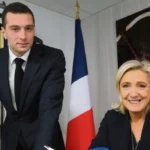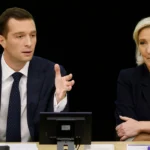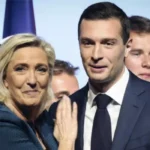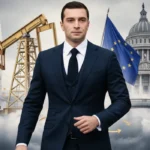Finland votes on Sunday to elect its president, a role whose importance has increased since joining NATO and worsening tensions with neighboring Russia due to the war in Ukraine.
Some 4.3 million voters must choose between the former conservative prime minister, Alexander Stubb, who came first in the first round on January 28 with 27.2% of the vote, and the former head of diplomacy, Pekka Haavisto, member of the Greens but who is running as an independent (25.8%).
Endowed with limited powers compared to the Prime Minister, the head of state, elected for six years, directs the country’s foreign policy in close cooperation with the government. He is also supreme commander of the armed forces.
Russian “countermeasures”
A notable role which has become even more important due to geopolitical developments in Europe and the entry into NATO of Finland, which shares 1,340 kilometers of border with Russia.
Remaining neutral during the Cold War, the Nordic country, long an advocate of dialogue between the West and Russia, ended three decades of military non-alignment after the invasion of Ukraine. It became a member of the Atlantic Alliance last year, to the great dismay of Russia which promised to respond with “countermeasures”.
At the end of August, Finland faced an influx of migrants on its eastern border, accusing Moscow of orchestrating a migration crisis on its doorstep. Helsinki closed its border with its neighbor in November, a measure supported by all the candidates.
Strengthening sanctions
“The fact that we have just joined NATO is of considerable importance” because the way in which it will be deployed in Finland “will largely be a task for the new president,” notes Theodora Helimaki, political science researcher at the University of Helsinki.
A poll carried out by public television Yle on Thursday credits Alexander Stubb with 54% of voting intentions against 46% for Pekka Haavisto. Alexander Stubb and Pekka Haavisto, both former foreign ministers, share the same vision on the position to adopt towards Russia with a strengthening of sanctions against Moscow.
“The European Union can do much more to help Ukraine,” said Pekka Haavisto during a televised debate on Thursday evening. “Ukraine’s path is our path, and right now they are fighting for the freedom of Europeans. They deserve all the support we can give them,” added Alexander Stubb.
Shades
In 2022, the outgoing president, Sauli Niinistö, elected in 2012 and reputed to be the current European leader to have spoken most regularly with Vladimir Putin, contacted him directly to announce the decision to join NATO . Since then, there has been radio silence and neither candidate expects a phone call from the Kremlin after the election.
The difference between the two candidates comes down to nuances, explains researcher Theodora Helimäki, who cites the question of the storage and transport of nuclear weapons in Finland. Pekka Haavisto does not want to authorize them, although as a member of NATO, the Nordic country must participate in exercises relating to the Alliance’s nuclear policy.
Alexander Stubb, for his part, estimated that the country should not exclude “any part” of NATO’s nuclear deterrence policy. Polling stations open at 9:00 a.m. local time (8:00 a.m. Swiss time) and close at 8:00 p.m. (7:00 p.m.).






